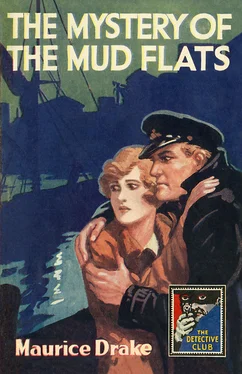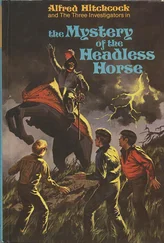R. Austin Freeman’s The Shadow of the Wolf (1925) is a tale involving the forgery of banknotes and murder on board a yacht off Wolf Rock in Cornwall. There is a significant boating influence in several thrillers by A. E. W. Mason, including The Dean’s Elbow (1930), and The House in Lordship Lane (1946) featuring Inspector Hanaud. Mason was himself a secret agent in WW1, as well as a keen yachtsman. One thinks also of various sea mysteries of the 1930s, including those by Taffrail (Captain Taprell Dorling—‘the Marryat of the modern Navy’) such as Mid-Atlantic (1936), John Remenham’s Sea Gold (1930), John C. Woodiwiss’s Mouseback (1939), Peter Drax’s High Seas Murder (1939) and Ernest McReay’s Murder at Eight Bells (1939). Later, a strong nautical theme can be seen in the novels of Andrew Garve, for example The Megstone Plot (1956) and A Hero for Leanda (1959); Edward Young’s espionage thriller The Fifth Passenger (1963); as well as several boating thrillers by J. R. L. Anderson, including Death in the North Sea (1975) from the series featuring Colonel Peter Blair, and Redundancy Pay (1976), also known as Death in the Channel .
Maurice Drake’s influence can also be seen in some of the sea mysteries of famous Golden Age detection writer Freeman Wills Crofts. The Golden Age commentator Curtis Evans has noted that Crofts was a great admirer of Drake’s sea adventure stories, and interestingly maintains he borrowed the surname of Maxwell Cheyne, the protagonist of Inspector French and the Cheyne Mystery (1926), from Willis Cheyne in WO2 . There are similarities too between Joan Merrill, the heroine of Crofts’ story and Pamela Brand in WO2 . Both stories feature Dartmouth harbour in their plots. Crofts’ earlier novel The Pit-Prop Syndicate (1922) also displays the influence of The Riddle of the Sands and WO2 . It centres on investigations by amateur sleuths into illicit smuggling activities, using boats ferrying pit props which sail from the Bordeaux coast canals across to the Humber Estuary.
Time now to rediscover and enjoy afresh the exciting adventures of sea-farers James Carthew-West and Austin Voogdt, as they tackle the strange mystery of the mud flats at Terneuzen, amid increasing dangers to themselves, and against a backdrop of the looming shadow of international conflict.
NIGEL MOSS
September 2017
CHAPTER I
CONCERNING A FOOL AND HIS MONEY
I WOKE on Exmouth beach that early summer morning much as I should think a doomed soul might wake, Resurrection Day. To the southward rosy, sunlit cliffs showed through faint haze like great opals—like the Gates of Pearl—and the bright business of getting-up was going on all around. Hard by the slimy piles of the wooden pier, in a corner tainted by rotting seaweed and dead shell-fish, I came slowly to consciousness, my eyes clogged and aching, a foul taste in my mouth, and in my mind lurking uneasiness as of a judgment to come. And lying out all night on dewy shingle had made me stiff in every joint, and sore as though I had been beaten all over with a stick.
The young day was one of heaven’s own, all blue and gold. The two men whose crunching feet upon the shingle had roused me were aboard the dinghy that had been mine twelve hours before—my Royal Torbay burgee still fluttering gaily at her masthead. Her new owner was swabbing dew from off her seats, pointing out her merits to his companion the while. He spoke of me, a thumb jerked over one shoulder to show where I lay upon the beach. ‘That there West’—the wind brought me that much; that, and a scornful laugh from the other. The whole bright day seemed laughing at me in derision, and I dropped my arms upon my face again and tried to get another hour of forgetfulness. I was at the bottom end of things. Poor comfort to reflect that I only had myself to blame.
I’d been on my uppers once before, at Kingston, in Jamaica, just after the earthquake; but I was fit then, with a clear conscience, and there was plenty to do. Now, with two years of idling and folly to my discredit, I only had the sore knowledge of chances thrown away. Besides, the past winter had tried me hard: poverty and loneliness and the sight of one’s property slipping away day by day make a man ripe for any foolishness by way of a change. Only the day before I’d parted with the dinghy, almost my last asset, and now, on the morrow, the price didn’t seem good enough. A rotten waterman’s tub, scarcely seaworthy, in part exchange; a couple of pound’s worth of loose silver in my pocket. And worst of all was the uncertainty as to what I should do next.
There had been no uncertainty at Kingston. There were more jobs there than men to do them, and I took the first that offered and did right well out of it. I had been with the Deutsche-West-Indie people till then, third mate on their Oldenburg , and we got into Kingston harbour the day after the town tumbled about the folk’s ears. Trier, our skipper, did the right sort of thing—called at the Consulate and offered free passages out of the place to as many Germans as he could carry, and so on—and then, having done what he considered his duty, was all for the sea again. But I wouldn’t go. Able-bodied whites were badly wanted ashore. Rescue parties were busy; there was a fearful mess to tidy up everywhere; there had been some bad cases of looting, and people were afraid the niggers would get out of hand.
My word, but that was work, that relief business! Awful, a lot of it—ghastly; but I don’t know when I enjoyed myself so much in my life. There were still lots of people alive and buried in the ruins, and we had to get them out. At first I was in a mixed lot of whites and blacks and yellows; and they were a mixture, too! Our foreman was a full-blooded nigger carpenter, a fine chap, a devil to work, and as strong as a bull. We had two doctors, one of ’em off a Japanese man-o’-war in harbour and the other a visitor—a tourist. Their head assistant was another tourist, a woman, wife of a vicar in Lancashire when she was at home; but she’d been a hospital nurse, and she pitched in, like the rest of us. There were nine or ten American sailors, and three of them wouldn’t speak to us English. There had been some fuss with our governor, who had declined the services of the American battleships’ crews, I believe, and they were wild as hawks about it. Dozens of them had sneaked ashore to help, the officers winking at it. One of our three must have known something about permanent deserting unless he’d picked up his Cockney accent in the States. They were good men, those three, and the Cockney wasn’t the worst of ’em. Then there was the son of the Mayor of Kingston and a yellow-bearded Finnish ship’s cook and a Chinese laundryman. Those were all the notabilities. The rank and file were niggers, some of them women.
After a week there weren’t any more of the living imprisoned, and we had to attend to the dead. Faugh! In the tropics. Awful! They broke our gang up and put the mayor’s son and myself in charge of another lot digging out bodies and burning them. The mayor’s son didn’t work up to his collar, I considered. So we had words about it, and he went off with his nose in the air. To do the chap justice, I think now he only meant to go a hundred yards and come back again, but I hadn’t time to think of that then, so I hove a half-brick at him and shouted to him to go to Hades. The brick got him in the back of the knee and brought him down in the road, and I sent a nigger to drag him into the shade and went on with the work. When I went to look for him he had cleared, and I never saw him again, but I fancy the incident had a good deal to do with my being left severely alone after things were tidy once more.
Читать дальше












